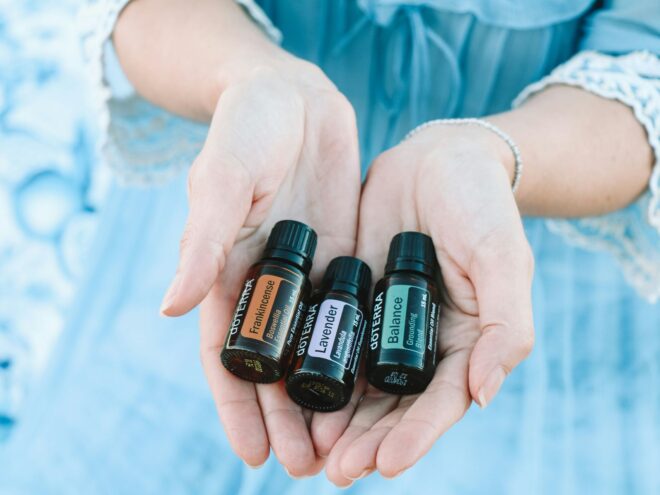Home • 07/09/2023
What Essential Oils Are Safe for Cats?

Revivalist is a reader-supported endeavor and our posts may contain affiliate links. When you buy through links on our site, we may earn an affiliate commission.
Essential oils are highly concentrated, aromatic compounds derived from plants. These oils typically contain the natural essences of the plants and are used for different purposes like skin care, aromatherapy and household cleaning. But are essential oils safe for cats?
If you’re a cat owner and fond of essential oils, you must know which ones are safe for your feline friends. Cats have unique physiologies, which make them more susceptible to certain compounds found in essential oils. If you don’t have the proper knowledge and caution, using the wrong essential oils can cause serious health issues for your cat, such as skin irritations or severe health problems.
6 Essential Oils Cat Owners Should Avoid
There are essential oils that contain ingredients that are harmful to cats. It’s best to familiarize oneself with these oils and their possible effects to avoid using them in your cat-friendly home.
1. Citrus Oil
Citrus oils include lemon, orange and grapefruit. They contain high levels of a compound called d-limonene, which is not good for your cat. If your cat is exposed, d-limonene might irritate its skin and mucous membranes, leading to diarrhea, drooling and vomiting. The citrus scent may also cause an allergic reaction.
2. Tea Tree Oil
Also called melaleuca oil, tea tree contains terpenes that affect cats’ metabolism. When a cat comes into contact with tea tree oil, whether through topical application or inhalation, it can result in tremors, lethargy, coordination problems and even liver damage.
3. Peppermint Oil
Peppermint has a high level of menthol that can cause gastrointestinal upset and central nervous system depression in cats. If your cat is overly exposed to peppermint oil, they might experience vomiting, diarrhea, respiratory disease and other liver complications.
4. Eucalyptus Oil
Eucalyptus can affect a cat’s breathing and cause distress. Other effects of eucalyptus on cats include drooling, vomiting, diarrhea and respiratory issues.
5. Cinnamon Oil
Cinnamon contains cinnamaldehyde, which can initiate allergic reactions in cats. If a cat inhales or ingests cinnamon oil, it can result in oral and throat discomfort, coughing, drooling and difficulty breathing. When the cat is exposed to this oil for an extended period, it might affect its liver.
6. Wintergreen Oil
This oil contains a high concentration of methyl salicylate. This substance can cause gastrointestinal problems, central nervous system depression and fatalities if the case is severe.
Why Are Cats Sensitive to Essential Oils?
Cats have a unique metabolism and liver enzyme system that sets them apart from other animals. Unlike humans, they have a limited capacity to metabolize and eliminate certain substances effectively.
This disparity is because of the lower activity of specific liver enzymes like glucuronyl transferase, which plays a vital role in detoxifying and breaking various compounds:
- Cats cannot eliminate and metabolize specific constituents found in essential oils, specifically monoterpenes, ketones and phenols.
- Due to the diminished enzymatic capacity in cats, they have higher chances of being at risk.
Since cats are more susceptible to certain compounds in essential oils, you must take more caution in using them:
- Phenolic compounds like thymol and carvacrol, commonly found in thyme and oregano, are highly toxic. They can cause liver damage, gastrointestinal irritation and central nervous system depression.
- Essential oils with high levels of ketone, like camphor and pinocamphone found in sage and hyssop, are neurotoxic, which can lead to respiratory disease or seizures.
- Monoterpenes like linalool and limonene, found in lavender and citrus oils, can also be problematic.
4 Essential Oils That Are Safe for Cats
So which essential oils are safe for cats? The following list will ensure your feline friend is safe and relaxed in your home.
1. Lavender Oil
Lavender has calming properties that help reduce anxiety and stress and promote a sense of tranquility among cats. To be safe, it’s best to dilute the oil properly.
A recommended dilution is one drop of lavender oil per one tablespoon of carrier oil like almond or coconut. You can put this onto the cat’s bedding or gently massage it into its fur. Make sure to observe the effects.
2. Chamomile Oil
Chamomile contains bisabolol and chamazulene, which have soothing effects on the nervous system. These compounds help promote relaxation, reduce stress and alleviate anxiety related-symptoms in cats. It also enables better sleep quality.
This oil contains antispasmodic properties, which help relax muscles and ease tension. This will be helpful for cats who are experiencing muscle spasms or have involuntary movements due to restlessness and anxiety.
3. Frankincense Oil
Frankincense has been used for its anti-anxiety properties. It acts on certain neurotransmitters in the brain, such as gamma-aminobutyric acid, which is essential in feelings of calmness and reducing anxiety. It’s also known to have stress-reducing properties that help modulate the stress response in cats.
Frankincense contains boswellic acids, which have anti-inflammatory properties. Inflammation in the body can cause more intense discomfort and anxiety. This oil will help soothe cats into a calmer state.
4. Cedarwood Oil
Cedarwood has a warm, woody aroma known for its calming and grounding properties. It can create a sense of tranquility and stability that’s beneficial when cats are experiencing stress. It also contains sedative properties that help reduce cat hyperactivity, nervousness and overall restlessness.
There are several types of cedarwood oil, such as Atlas cedarwood, which has traditionally been used for its potential respiratory benefits. Cedarwood can also help calm cats down. Additionally, this oil can also prevent insect infestations thanks to its pest-repeller effects. This benefit will help your cat avoid fleas and ticks.
What to Remember When Discussing Which Essential Oils Are Safe for Cats
Cats are unique creatures with sensitivities that make them more susceptible to certain compounds found in essential oils. Taking care of them means consulting a veterinarian who can provide insights and guidance specific to their condition. It’s also recommended to learn about the proper dilution of essential oils to avoid concentrations vital for cats’ sensitive systems.
Last but not least, make sure you observe your cat’s responses to essential oils, especially if it’s their first time encountering them. Monitor their mood, behavior and physical reactions to new oils. If you see any discomfort, irritation or other adverse reactions, it’s best to stop using the essential oil in the meantime. Ask your vet what’s the best steps to take.
Subscribe to Our Weekly Newsletter
We would love to connect deeper with you!


